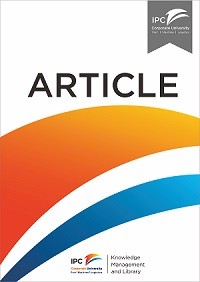Article
A stochastic frontier model of the productive efficiency of Korean container terminals
A central objective of port privatization and/or deregulation policies is stimulating greater efficiency by engendering a more competitive market and commercial approach to management. Korea provides a prime example of a nation that is implementing such policies. Also, its ports play a pivotal role in world shipping, particularly in the ever-burgeoning container market. The success of these policies in increasing the productive efficiency of Korean container terminals is assessed. The UK container terminal sector provides a useful benchmark for comparison since privatization and deregulation have formed an integral part of UK port reforms for nearly 20 years and the effect on efficiency, having had time to mature, will be much easier to gauge. The stochastic frontier model is justified as the chosen methodology for estimating productive efficiency levels and is applied to cross-sectional data under a variety of distributional assumptions. A panel data model is also estimated. Results are consistent and suggest (1) The degree of private sector involvement in sample container terminals is positively related to productive efficiency and (2) Improved productive efficiency has followed the implementation of privatization and deregulation policies within the Korean sector. Even though not categorical, these conclusions are important because the market for container throughput is internationally competitive and if policies which promote competition between Korean container terminals lead to greater productive efficiency, this will inevitably make the sector as a whole more competitive internationally.
Ketersediaan
Informasi Detail
- Judul Seri
-
Applied Economics
- No. Panggil
-
ATC LO CUL a
- Penerbit
- Hong Kong : routledge taylor france group., 2003
- Deskripsi Fisik
-
18p
- Bahasa
-
English
- ISBN/ISSN
-
1466–4283
- Klasifikasi
-
LO
- Tipe Isi
-
-
- Tipe Media
-
-
- Tipe Pembawa
-
online resource
- Edisi
-
2003
- Subjek
- Info Detail Spesifik
-
-
- Pernyataan Tanggungjawab
-
Kevin Cullinane
Versi lain/terkait
Lampiran Berkas
Komentar
Anda harus masuk sebelum memberikan komentar

 Karya Umum
Karya Umum  Filsafat
Filsafat  Agama
Agama  Ilmu-ilmu Sosial
Ilmu-ilmu Sosial  Bahasa
Bahasa  Ilmu-ilmu Murni
Ilmu-ilmu Murni  Ilmu-ilmu Terapan
Ilmu-ilmu Terapan  Kesenian, Hiburan, dan Olahraga
Kesenian, Hiburan, dan Olahraga  Kesusastraan
Kesusastraan  Geografi dan Sejarah
Geografi dan Sejarah